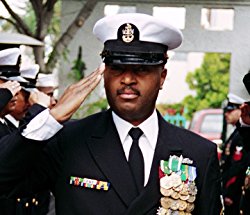A Quote by Oscar Arias
It's clear to me that many weapons sales are very short-sighted. The U.S. and other arms-producing countries sell weapons for a variety of reasons, but most sales involve strategic interest or profit motivation, or both.
Related Quotes
We are calling on countries that supply weapons to comply with certain restrictions: not to sell weapons to human rights abusers, not to sell them to governments or groups carrying out aggression against states, not to make weapons sales that could disrupt security or development in the receiving region. These are in many ways common sense principles, but sadly, there seems to be very little common sense in the international arms trade.
The problem with basing weapons sales on strategic interest is that these interests tend to shift over time, while weapons are durable goods that do not evaporate as quickly as some alliances do. Once supplied, they can't be taken back. That leads to situations such as the ones we have seen in Iraq, Somalia.
One of the greatest concerns that I had when I became President was the vast array of nuclear weapons in the arsenals of the United States and the Soviet Union and a few other countries, and also the great proliferation of conventional weapons, non-nuclear weapons, particularly as a tremendous burden on the economies of developing or very poor countries.
In history, in most cultures, and at most points in time, if you want to find the most advanced technologies, you can look principally in two places. One is weapons and the other is musical instruments. My hypothesis is that instruments are usually ahead of weapons. In fact, I think you can find many examples of instruments being predecessors of weapons and very few in the reverse.
It's fashionable to use terms like 'sales funnels' to describe the sales process for many companies, and it is true that the funnel design is very appropriate for the digital world, but despite all the prose written on sales funnels and the like, my question is still the same - when do you close your sales, and how long does that take?
We could still have continued the arms race, but the arms race was pointless, and it was another reason we decided to start perestroika. It was senseless to continue to accumulate weapons. We had enough weapons to destroy life on Earth 1,000 times, and therefore it was very clear to us that the arms race could spiral out of control. A conflict could have started, as both the Americans and the Soviets realized, not out of a wrong political decision but because of a failure in the command-and-control systems.
What is the only provocation that could bring about the use of nuclear weapons? Nuclear weapons. What is the priority target for nuclear weapons? Nuclear weapons. What is the only established defense against nuclear weapons? Nuclear weapons. How do we prevent the use of nuclear weapons? By threatening to use nuclear weapons. And we can't get rid of nuclear weapons, because of nuclear weapons. The intransigence, it seems, is a function of the weapons themselves.
Land mines, torture equipment, cluster bombs, chemical weapons are weapons designed to inflict pain and death on human beings. Most victims are civilians, women and children. How can arms manufacturers, weapons designers, plant managers, politicians, who have families of their own whom they love, be so insensitive when it comes to the suffering of other human beings?
I think Donald Trump is very, very cautious about nuclear weapons, and he's seriously concerned. And this might be one of the reasons he wants to deal with Putin carefully, because he's aware of how many nuclear weapons Putin has, and that Russian doctrine is much more open about using nuclear weapons than is American doctrine.
































